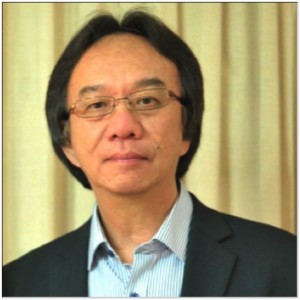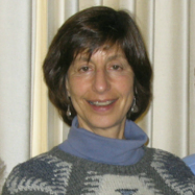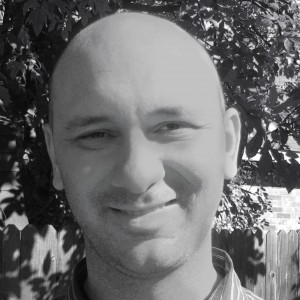Willy Renandya

Willy A Renandya
National Institute for Education, Singapore
Dr Willy A Renandya is a language teacher educator with extensive teaching experience in Asia. He currently teaches applied linguistics courses at the National Institute of Education, Nanyang Technological University, Singapore. He has published extensively, including an edited book Methodology in Language Teaching: An Anthology of Current Practice (CUP, 2002, 2008). His latest publications include Teacher, the tape is too fast: Extensive listening in ELT (ELTJ, 2011) and a book chapter Extensive Reading Coursebooks in China (Routledge, Forthcoming). He is as a member of the Extensive Reading Foundation and an active ER Bibliography archivist.
|
The Power of Extensive Listening
There is now a large body of literature which supports the claim that rich language input can greatly facilitate L2 learning. To date however the empirical evidence has come largely from research into extensive reading (http://erfoundation.org/wordpress/er-bibliography/). Its twin sister, extensive listening, has received little attention in the literature. This is rather surprising, given the potential language learning benefits of extensive listening on L2 learners’ language development. In this presentation, I will start by describing what extensive listening is and how it is different from the kind of listening lessons (e.g., intensive listening and strategy-based listening lessons) often used in L2 classrooms. I will then present both theoretical and empirical basis for suggesting that a successful L2 listening programme must include a strong extensive listening component. Next, I will discuss how extensive listening can be productively developed and effectively implemented by classroom teachers and provide practical tips on how to select suitable extensive listening materials from both traditional and on-line sources and how to design effective extensive listening tasks which are both interesting and motivating for our L2 learners. Finally, I will discuss how extensive reading and listening can be creatively combined to bring about the most optimal impact of rich language input on L2 learning.
|
Fredricka Stoller

Fredricka Stoller
Northern Arizona University
Fredricka L. Stoller is a Professor of English at Northern Arizona University, where she teaches in the MA-TESL and Ph.D. in Applied Linguistics programs. She is co-author of Teaching and Researching Reading (2nd ed., 2011, with W. Grabe, Routledge); co-editor of A Handbook for Language Program Administrators (2nd ed., 2012, with M. A. Christison, Alta English Publishers); and co-author of Write Like a Chemist (2008, with M. Robinson et al., Oxford University Press). She has publications on reading-related topics in numerous edited volumes and in English Teaching Forum, Reading in a Foreign Language, Contemporary Foreign Language Studies, TESOL Journal, and The Encyclopedia of Applied Linguistics. Her professional areas of interest include L2 reading, disciplinary writing, project-based learning, content-based instruction, language teaching methodology, and teacher training.
|
Shaking the Sand Out of Our Boots: Building a Better Extensive Reading Oasis
Advocates of extensive reading understand that it is a rather complex undertaking. Consider all the possible elements of an extensive reading program that must coalesce for its success: reading materials, activities to motivate and support reading, mechanisms for monitoring students’ reading and comprehension, procedural matters, administrative support, linkages to the larger language curriculum, and much more.
What works well? Which elements could be improved or altered to add variety to the program?
One way in which to better understand our extensive-reading programs is by engaging in action research, a form of teacher-initiated inquiry. Action research provides us with non-threatening means for investigating aspects of our extensive-reading programs that we want to understand better and/or improve. In this plenary, an easily adaptable 12-step action research process is introduced, followed by an exploration of sample action research projects, centered on various elements of extensive reading curricula, that will serve as models of the process.
|
Rob Waring

Rob Waring
Notre Dame Seishin University
Rob Waring is an acknowledged expert in Extensive Reading and second language vocabulary acquisition. He is Professor at Notre Dame Seishin University in Okayama, Japan. Professor Waring has published over 60 articles and has lectured in 18 countries on foreign and second language acquisition and given over 40 plenary, keynote or featured speaker talks around the world on Extensive reading and vocabulary. He is an Executive Board member of the Extensive Reading Foundation, and Vice Chair of the Korean English Extensive Reading Association and was Co-Chair of the Second World Congress on Extensive Reading in Seoul, Korea in 2013. He is also author and series editor of the Foundations Reading Library, and the series editor of the Footprint Reading Library and the Page Turners Reading Library by Cengage Learning. He is the administrator and co-founder of the Extensive Reading website http://www.ER-Central.com.
|
What Exactly is Extensive Reading?
Despite ER being on the ELT menu for almost a century, it is still considered an infant in relation to other ELT methods and approaches. Sadly, fluency practice still struggles to make headway and the lack of familiarity with, or understanding of, ER in some circles has lead to it being seen as a threat to the still dominant teacher-led language and exam-focused paradigm. Even the teachers who do know about ER, are faced with a daunting array of decisions to make when setting up a program – which materials, assessment, funding, how much reading to be done, how to integrate it, which follow up activities, and so on – often leading to paralysis. Combined with misunderstandings about ER, many ER programs never even start, despite good intentions. To combat this, there is then an urgent need to create a simple easy to understand message about ER. An obvious place to start is with a clear definition. We would think that given the work of Day and Bamford and the legions of ER practitioners around the world, we would have a fairly good idea about what ER is. But as ER matures, this is becoming increasingly uncertain. For example, not all researchers refer to the same thing. Some say the reading of graded readers makes it ER; others say a book a week is fine, others two books a semester; yet others allow dictionaries; some insist on assessment, while others frown. Given this diversity of opinion with our field, the time has come to set our sights on a common understanding of what ER is. Without a clear definition of ER, we will find it hard to promote ER/EL beyond its current borders. Our current guiding light for a definition of ER has always been Day and Bamford’s “ten principles of successful ER programs.” This talk will re-examine these principles to see how relevant they still are, and how we might update and bring clarity to our shared passion.
|
Featured Speakers
Adam Gray

Adam Gray
Adam Gray is currently a school principal in the Dallas, Texas area. In the past, he has taught students of all levels in Japan, Chile and the United States. He holds a Bachelor’s degree in English from the Ohio State University, where his academic focus was on creative writing. In addition, Adam earned Masters degrees in TESOL from the American University in Washington, D.C. and in Educational Leadership and Policy from the University of Texas at Arlington. Adam was co-author of Fiction in Action: Whodunit, which was a 2011 ELTons award winner: the Cambridge ESOL International Award for Innovation. Whodunit also won HRH the Duke of Edinburgh ESU English Language Book Award. Adam is also author of Fiction in Action: Spellbound and of a forthcoming extensive reading series, the Whodunit Ellie Koo Mystery Readers.
|
Narrow Reading and ER
In ‘The Case for Narrow Reading’ (2004) Stephen Krashen argues against a multi-topic approach to reading. He suggests instead that narrow input from a single author or genre may best serve ELLs. Among other benefits, he cites better acquisition of structure and vocabulary, enhanced comprehension based on amplified background knowledge, and, simply, more enjoyment. This talk will look at Narrow Reading and how it can be applied to an ER program.
|

Christine Coombe
HCT Dubai Men’s College
Christine Coombe has a Ph.D in Foreign/Second Language Education from The Ohio State University. She is currently on the English faculty of Dubai Men’s College. She is the former Testing and Measurements Supervisor at UAE University and Assessment Coordinator of Zayed University. Christine is co-editor of Assessment Practices (2003, TESOL Publications); co-author, A Practical Guide to Assessing English Language Learners (2007, University of Michigan Press); co-editor, Evaluating Teacher Effectiveness in EF/SL Contexts (2007, UMP); co-editor, Language Teacher Research in the Middle East (2007, TESOL Publications), Leadership in English Language Teaching and Learning (2008, UMP) Applications of Task-based Learning in TESOL (2010, TESOL Publications), The Cambridge Guide to Second Language Assessment (2012, Cambridge University Press) and Reigniting, Retooling and Retiring in English Language Teaching (2012, University of Michigan Press). Christine’s forthcoming books are on research methods in EF/SL and life skills education.
Christine has lived and worked in the Arabian Gulf for the past 22 years. In this capacity, she has served as the President and Conference Chair of TESOL Arabia and as the founder and co-chair of the TESOL Arabia Testing Special Interest Group who organize the Current Trends in English Language Testing (CTELT) Conference. Christine is also the founder and chair of the TESOL Arabia Leadership & Management SIG.
During her tenure in the Middle East, she has won many awards including: 2002 Spaan Fellowship for Research in Second/Foreign Language Assessment; 2002-03 TOEFL Outstanding Young Scholar Award; TOEFL Board Grant for 2003-04, 2005-06, 2007-08 and 2009-10 for her work in delivering assessment training assessment in developing countries. Most recently she served on the TESOL Board of Directors as Convention Chair for Tampa 2006 and was the recipient of the Chancellor’s Teacher of the Year for 2003-04. She served as TESOL President (2011-2012) and was a member of the TESOL Board of Directors (2010-2013). Christine received the British Council’s International Assessment Award for 2013.
|
Reading Assessment Basics
Reading comprehension is an essential skill in today’s world. This presentation focuses on some of the basics of second language reading assessment. Techniques and tips for adapting reading texts to suit the student level will be shared. Then question formats appropriate to the assessment of reading comprehension will be presented and discussed. Participants will then have the opportunity to develop some questions of their own.
|
Julie Till
 Julie Till
Oxford University Press |
Julie Till is the author of Drive to Dubai and Mystery in Muscat (Dominoes graded readers) and has also written reading comprehension books and a short story for Oxford University Press (OUP). Julie is Head of Business Development for Central Asia, Middle East and North Africa for OUP and has been based in the UAE since 2007. Julie has managed a number of extensive reading projects with ministries in the region as well as events such as the Oxford University Short Story Writing Competition during the Emirates Airlines Festival of Literature and the National Bookworms Competition in Lebanon. She has set up a number of different training programmes in the region including the Oxford Teacher’s Academy on Extensive Reading and Literacy for Arabic Speakers of English. Julie is also the regional sponsor for OUP’s new Arabic literacy project.
|
Publishing for Extensive Reading
This session will consider trends in publishing graded readers. It will look at the choices authors and publishers make around topics, target groups and grading language. The session will also look at the support publishers provide for foreign language learners and their teachers and draw on successful extensive reading projects in Bahrain, Italy and Lebanon.
|






